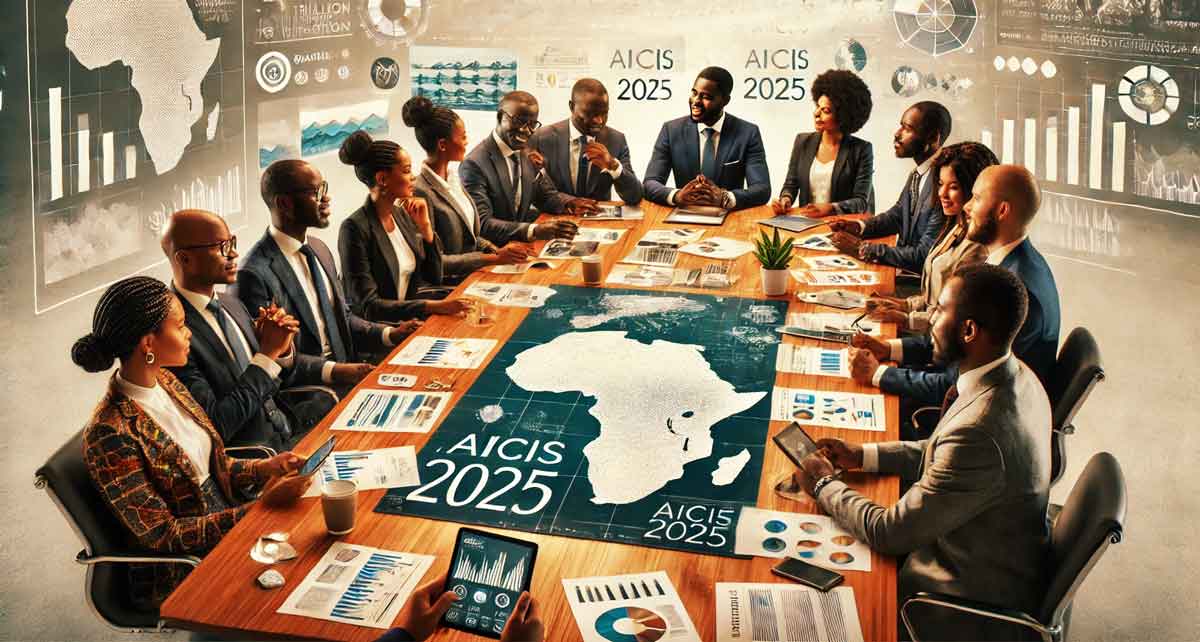As Nigeria prepares to host the Africa Multilateral Infrastructure, Climate Change, and Green Investment Summit, AICIS 2025, the continent’s digital transformation emerges as a cornerstone of its sustainable development agenda. Technology is not just an enabler but a catalyst for change, driving innovation, economic growth, and infrastructure development.
From smart agriculture and digital banking to renewable energy systems and AI-powered solutions, the digital revolution is reshaping Africa’s landscape. At AICIS 2025, this transformation will be a focal point, as leaders and innovators gather to explore how technology can propel Africa toward achieving its climate resilience and green investment goals.
Africa’s Digital Revolution: A Brief Overview
Africa’s digital transformation is one of the fastest-growing phenomena globally, thanks to its young population, rapid urbanization, and expanding internet connectivity. According to a report by GSMA, sub-Saharan Africa is expected to have over 600 million smartphone connections by 2025, making it a hotbed for technological innovation.
Key areas driving this revolution include:
- Mobile Connectivity:
- Mobile technology has become the backbone of Africa’s digital economy. Services like mobile money have revolutionized banking for millions of unbanked individuals.
- Artificial Intelligence (AI):
- AI-driven solutions are helping to address Africa’s unique challenges, from optimizing crop yields in agriculture to enhancing healthcare delivery through telemedicine.
- Renewable Energy Innovations:
- Technologies like IoT (Internet of Things) and AI are enabling smarter energy grids, improving the efficiency of renewable energy systems across the continent.
- E-Commerce and Digital Markets:
- Platforms like Jumia and Flutterwave are empowering small businesses to reach global markets, driving economic inclusion and growth.
- Blockchain and Fintech:
- Blockchain technology is transforming supply chain management and financial transactions, promoting transparency and reducing costs.
How AICIS 2025 Will Highlight The Role of Technology in Africa
AICIS 2025 will be a pivotal platform for showcasing Africa’s technological advancements and their impact on climate action, green investment, and sustainable infrastructure development. Key features include:
- Technology-Focused Exhibitions:
- The summit’s 4-day exhibition will highlight cutting-edge technologies from African startups and global tech giants. Expect to see AI-powered climate monitoring tools, blockchain solutions for green investment, and IoT applications for smart cities.
- Panel Discussions and Workshops:
- Industry leaders will discuss how digital tools can support Africa’s transition to a green economy. Workshops will offer hands-on insights into leveraging technology for renewable energy, sustainable agriculture, and smart infrastructure projects.
- Spotlighting Local Innovations:
- African tech innovators will have a unique platform to present solutions tailored to the continent’s challenges, fostering partnerships with investors and governments.
- Policy Advocacy for Digital Infrastructure:
- Policymakers and stakeholders will collaborate to develop frameworks for expanding digital infrastructure, ensuring inclusivity and sustainability.
Technology and Climate Resilience
The intersection of technology and climate resilience is a critical area of focus for AICIS 2025. Here’s how digital tools are driving climate solutions:
- Smart Agriculture:
- Digital platforms and IoT devices are helping farmers monitor weather patterns, optimize irrigation, and predict crop yields. These innovations enhance food security while minimizing environmental impact.
- Energy Optimization:
- AI algorithms are improving energy efficiency by predicting demand and optimizing the use of renewable energy sources, reducing reliance on fossil fuels.
- Disaster Preparedness:
- Early warning systems powered by AI and big data are enabling governments to respond proactively to climate-related disasters, safeguarding lives and livelihoods.
- Carbon Footprint Tracking:
- Blockchain technology is providing transparent systems for tracking carbon emissions and trading carbon credits, incentivizing greener practices.
The Economic Impact of the Digital Revolution
Technology is not just transforming how Africa addresses climate challenges—it’s also driving economic growth. According to the World Bank, digital innovation could contribute up to $180 billion to Africa’s economy by 2025.
Key economic benefits include:
- Job Creation:
- The tech sector is creating jobs across fields like software development, data analytics, and renewable energy engineering.
- Empowering MSMEs:
- Technology platforms are providing micro, small, and medium enterprises (MSMEs) with tools to scale operations, access new markets, and attract investment.
- Reducing Transaction Costs:
- Fintech solutions like mobile money and cryptocurrency are reducing transaction costs, promoting financial inclusion.
Challenges to Address
While the digital revolution offers immense opportunities, Africa must overcome several challenges to fully leverage its potential:
- Infrastructure Gaps:
- Limited internet access in rural areas remains a barrier to digital inclusion.
- Cybersecurity Risks:
- The rapid growth of digital systems necessitates robust cybersecurity measures to protect data and infrastructure.
- Skill Gaps:
- Building a digitally literate workforce is crucial for sustaining the momentum of technological advancements.
AICIS 2025 will address these challenges by fostering dialogue among stakeholders and encouraging investments in digital infrastructure and education.
Be Part of This Transformative Journey
As Africa gears up for AICIS 2025, the digital revolution represents an unparalleled opportunity to accelerate climate action, drive green investment, and transform lives. By harnessing the power of technology, Africa can not only overcome its challenges but also set an example for sustainable development worldwide.
Be part of this transformative journey at AICIS 2025 from May 27–30, 2025, in Nigeria. Join industry leaders, innovators, and policymakers in shaping the future of Africa’s digital and sustainable landscape.
Stay tuned for the next post, where we explore the critical role of the blue economy in Africa’s sustainable development.
#AICIS2025 #DigitalRevolution #GreenInvestment #SustainableAfrica #TechnologyForGood
Click the the link below to know more about AICIS 2025




